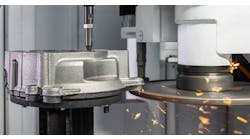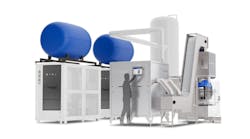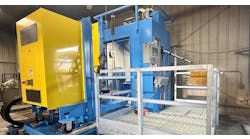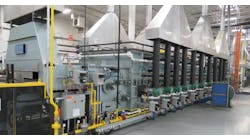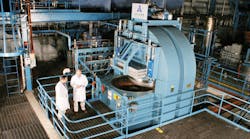Identifying what it called “a general need in the steel industry for a standard defining the basic quality control requirements for hot isostatic pressing,” a committee of ASTM International laid out manufacturing criteria for the emerging process for forming and treating metal parts. The ASTM A1080, Practice for Hot Isostatic Pressing of Steel, Stainless Steel and Related Alloy Castings. A1080 was developed by Subcommittee A01.18 on Castings, part of ASTM International Committee A01 on Steel, Stainless Steel and Related Alloys.
Isostatic pressing involves a specially designed and built system for forming and densifying powdered metal or cast materials using liquid or gas under very high pressure. Unlike mechanical force, which compresses a workpiece from one or two sides, isostatic pressure is applied uniformly on all sides of an object, eliminating internal porosity without changing its net shape.
In cast parts, for example, HIP is used to remove shrinkage defects, and other pores and voids as potential initiators of failure. Low- and high-cycle fatigue and stress rupture properties are enhanced. HIP treatment also may provide improved homogeneity in the casting, with the result that chemical machining and corrosion susceptibilities are improved.
John Schleicher, technical/development sales manager for Orchid Orthopedics, and an A01.18 member, hot isostatic pressing can be used in place of typical thermal processing for some alloys. Also, it is sometimes used to reduce rework and salvage time. He said that hot isostatic pressing can enhance material properties for certain materials, and in some applications it can be used to “diffusion bond” two pieces together.
"The new standard is intended to demonstrate the minimum amount of process control/monitoring required to control the HIP process," Schleicher stated. "ASTM A1080 will benefit the users who don't currently have their own internal documents or procedures for HIP. Many people are not aware of the HIP process and this standard will provide manufacturers with much needed information to use the process."
ASTM International is an international standards development and delivery system, working within the World Trade Organization principles for “coherence, consensus, development dimension, effectiveness, impartiality, openness, relevance and transparency” as it develops standards used for research and development, product testing, quality systems, and commercial transactions. ASTM standards are available for sale at www.astm.org
